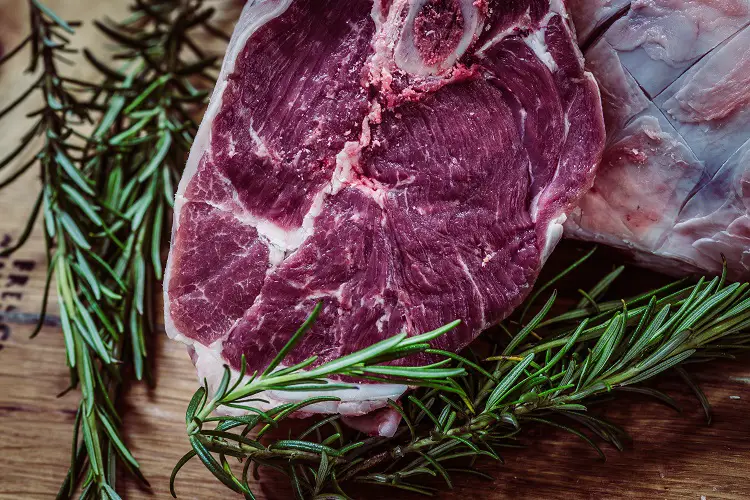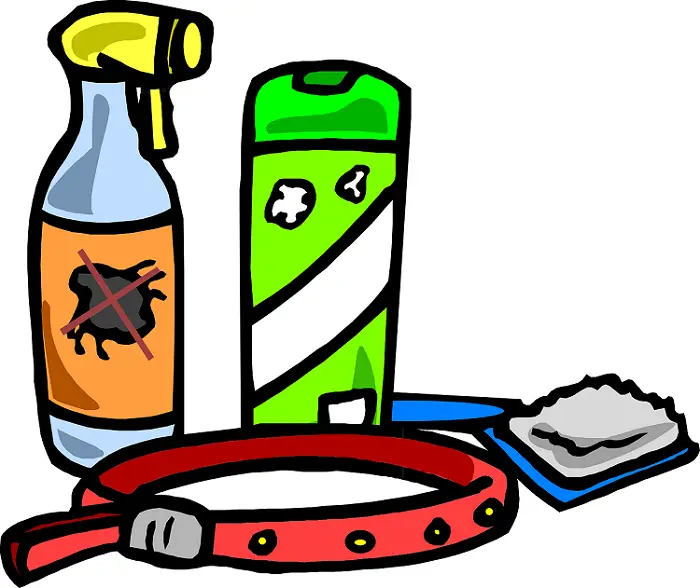The need for healthy eating can’t be overemphasized as essential nutrients are needed for the growth and development of the body.
As an expecting mother what you eat when you are pregnant daily may influence you and your baby’s health. That is why it is important to know the list of foods to avoid during pregnancy.
I could remember sitting down in a beauty salon patiently waiting to get my nails fixed when an expecting woman walked in to get her hair done, but due to the queue in the salon, she sat down.
A few minutes later, she brought out queso blanco cheese, out of curiosity I asked her what do you intend to do with this cheese and her reply was, she intends adding it to her homemade salad, and sometimes she uses it for garnishing.
I was shocked does she know the implication of eating soft cheese?. Read on as we enlighten you more on these following…
15 List Of Foods To Avoid During Pregnancy

Raw Cookie Dough Or Cake Batter
Always ensure that your cake and cookies are properly baked before eating and resist licking the spoon used in mixing the batter. Raw batter and dough may contain salmonella.
The presence of salmonella bacteria in the mother bloodstream causes an infection in the amniotic fluid (A fluid that surrounds the baby during pregnancy) and this can cause serious health issues and may lead to miscarriage.
Soft Cheeses
Avoid soft cheeses made from unpasteurized milk, including brie, feta, camembert, roquefort, queso blanco, and queso fresco during pregnancy; it may contain Escherichia coli or listeria.
Listeria infection during pregnancy can cause miscarriage, stillbirth, uterine infection and preterm delivery, and some other serious health-related issues. It is advisable to eat hard cheeses, such as cheddar or Swiss.
Also, before the purchase of any cheese, it is advisable to always check the label and make sure that the cheese is made from pasteurized milk.
Unpasteurized Juice Or Cider
Avoid unpasteurized juice or cider (including fresh squeezed) because it may contain Escherichia coli. E.coli infection during pregnancy can cause diarrhea which leads causes the body losing a lot of fluids and hence causes dehydration.
It is advisable to drink pasteurized juice and ensure to bring unpasteurized juice or cider to a rolling boil and boil for at least 1 minute before drinking.
Under-cooked Fish
Avoid raw or under-cooked fish (sushi); it may contain parasites or bacteria that cause food-borne illness which can lead to severe vomiting, diarrhea, and abdominal pains. It is advisable to cook fish to 145° f until well cooked.
Unpasteurized Milk
Avoid unpasteurized milk during pregnancy; it may contain bacteria such as Campylobacter, E. coli, Listeria, or Salmonella.
Campylobacter jejuni is primarily intestinal inhabitants which may lead to intrauterine infection of the fetus, abortion, stillbirth, or early neonatal death. It is advisable to drink pasteurized milk.
Salads
Avoid salads made in a store, such as ham salad, chicken salad, and seafood salad, it may contain Listeria. Ensure you make the salads at home, following the food safety basics: cleaning, separation, cooking, and chilling.
Under-cooked Sprouts
Avoid raw or under-cooked sprouts, such as alfalfa, clover, mung bean, and radish. It may contain E.coli or Salmonella, ensure you cook sprouts thoroughly.
Shellfish
Avoid raw shellfish, such as oysters and clams, it may contain vibrio bacteria. Vibrio bacteria can’t survive on a very high temperature so it is advisable to cook your shellfish to a temperature of 145° f.
Hot Dogs
Pregnant women should be careful of how they eat hot dogs, luncheon meats, cold cuts, fermented or dry sausage, and other deli-style meat and poultry as they may contain Listeria.
Even when the label says that the meat is precooked, it is advisable to reheat these meats to a temperature of 165° f before eating.
Under-cooked Eggs
Pregnant women should avoid under-cooked eggs, eggnog’s, and pasteurized egg products as it may contain Salmonella.
Always ensure that the eggs are cooked until yolks are firm, cook casseroles, and other dishes containing eggs or egg products to 160° f.
Read Also: Can I Drink Apple Cider Vinegar When Pregnant? 10 Health Benefits
Ice-Cream
As surprising it may sound, this has to be included in the list of foods to avoid during pregnancy. As a pregnant woman, you ought to be conscious of the kind of ice-cream you consume, as ice cream may contain uncooked eggs, which may contain Salmonella.
It is advisable to take ice cream made with a pasteurized egg product by adding the eggs to the amount of liquid called for in the recipe, then heating the mixture thoroughly.
Under-cooked Meat
Avoid under-cooked meat like beef, veal, lamb, and pork (including ground meat) should be avoided as it may contain E.coli. Beef, veal, and lamb steaks should be cooked to a temperature of 145° F, pork to 160° F, and all ground meats to 160° F.
Under-cooked Poultry And Stuffing
Avoid under-cooked poultry and stuffing (including ground poultry) should be avoided as it may contain bacteria such as Campylobacter or Salmonella.
Poultry meat should be cooked to a temperature of 165° F and If the poultry is stuffed, cook the stuffing to 165° F. Better yet, cook the stuffing separately.
Caffeine
Limit your caffeine intake during pregnancy as too much intake of caffeine can lead to miscarriage. The daily dietary recommendation for a pregnant woman is 200 milligrams.
Caffeine is found in coffee and coffee-flavored products, like yogurt and ice cream, tea, some soft drinks, energy drinks, chocolate, and chocolate products.
Alcohol
Too much consumption of alcohol can be harmful to your baby, particularly during the early stages of pregnancy. However, not drinking alcohol is the safest option for pregnant women.
Read Also: What To Eat Before Labor
Unhealthy Substances To Avoid During Pregnancy
Mercury
This is mostly found in large oceans fishes such as tuna, shark, marlin, swordfish, king mackerel, and tile fish (golden or white snapper). A pregnant woman should avoid fishes that contain a high level of mercury.
Eating fish high in mercury can pass the metal to the baby during pregnancy and this can cause brain damage and affect the baby’s hearing and vision.
It is advisable to eat up to 12 ounces a week of fish and shellfish that are lower in mercury, such as shrimp, salmon, Pollock, and catfish, and also limit the consumption of albacore tuna to 6 ounces per week.
Lead
Frequent exposure to lead may cause an increased risk of hypertension, spontaneous abortion in the mother, low birth weight, and impaired neural development in the infant.
Artificial Sweeteners
Artificial sweeteners like stevia, saccharin, acesulfame potassium, sucralose, and aspartame should be avoided during pregnancy.
Acesulfame potassium and sucralose crosses the placental barrier and appears in the breast milk. Though, they are found to be safe for mother and fetus.
However, aspartame should be avoided by women who have traces of health-related illnesses like phenylketonuria, which is toxic to the fetal brain. Stevia meanwhile does not affect fetal development.
Poly-Chlorinated Biphenyls And Dioxins
Poly-chlorinated biphenyls and dioxins are lipophilic substances that accumulate in fats. They are mostly found in oily fish (salmon, trout, carp, and herring) and fish liver.
As a pregnant woman, it is best advised to stop eating these fish as oily fish is highly recommended and to be eaten at least once a week.
Pesticides
Pesticides are generally harmful to human beings. Consumption of pesticides during pregnancy could result in larger implications in both the health of the baby and the health of the mother.
Related Posts:
- Baby Shopping List For First Time Moms
- How To Reduce Pregnancy Swelling
- Foods That Make Breast Milk Taste Good
- Hair Loss During Pregnancy (Everything You Need To Know)
- 7 Best Sex Position To Get Pregnant With Twins
Wind-Up
It is very important to put into consideration that fetal growth, development, health, and survival depends on the nutrients and oxygen from the mother.
Knowing the list of foods to avoid during pregnancy helps to reduce the risks of anemia, as well as other unpleasant pregnancy symptoms such as fatigue and morning sickness. More so, it also helps to balance mood swings and also improve labor and delivery.
A healthy food choice during pregnancy will make your fetus reach its growth potential which therefore results in the birth of a healthy newborn of appropriate size.
I believe this article has enlightened you more on the list of foods to avoid during pregnancy. If you have questions or have other suggestions kindly share with us.

